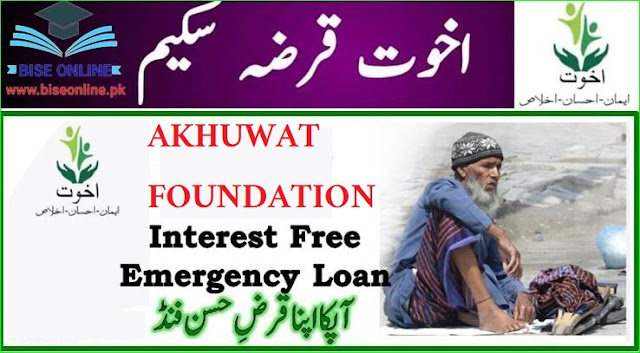In a world grappling with persistent poverty and economic disparities, innovative and culturally resonant solutions to development are essential. Pakistan, with its complex socio-economic fabric, has witnessed various models aimed at alleviating poverty and promoting sustainable development. Among these, Akhuwat stands out as a remarkable example of an indigenous organization leveraging local values and social capital to foster economic growth and social cohesion.
Akhuwat, founded in 2001 by Dr. Amjad Saqib, is a non-profit organization that has revolutionized microfinance in Pakistan through its interest-free loan model. Rooted in the principles of brotherhood (akhuwat) and solidarity, Akhuwat aims to empower the economically marginalized by providing financial assistance without the burden of interest, which is often a significant barrier for the poor in traditional microfinance schemes.
Akhuwat Foundation: Championing Islamic Microfinance in Pakistan
Economic development in Pakistan has been a persistent challenge, characterized by significant poverty rates, unemployment, and income inequality. Traditional financial institutions and microfinance models often fail to reach the most vulnerable populations due to high interest rates and stringent lending criteria. However, Akhuwat, an innovative non-profit organization founded in 2001 by Dr. Amjad Saqib, offers a unique solution to these issues through its interest-free microfinance model.
Akhuwat’s approach is deeply rooted in the Islamic principle of Qarz-e-Hasan (benevolent loan), which prohibits interest on loans, thereby aligning with the socio-cultural and religious ethos of the majority Muslim population in Pakistan. By providing interest-free loans, Akhuwat not only empowers the economically disadvantaged but also fosters a culture of solidarity and mutual support.
This paper aims to analyze how Akhuwat loans contribute to the promotion and development of Pakistan’s economy. We will explore the operational mechanisms of Akhuwat, assess the economic and social impacts of its microfinance initiatives, and discuss the potential for scalability and replication of this model in other regions. Through this examination, we seek to understand how Akhuwat’s interest-free loans can be a catalyst for sustainable economic growth and social development in Pakistan.
A Step-by-Step Guide: Navigating the Akhuwat Loan Application
When applying for support from the Akhuwat Foundation, there are several important factors to consider to ensure a successful application and to understand how the process aligns with Akhuwat’s principles and objectives. Here is a detailed guide to the key considerations:
Important Things to Consider When Applying for Akhuwat Foundation
- Choose the best finance source: Several sources are offering Akhuwat loans, each with its unique requirements. Finding the financing source that best suits the requirements of the project or program being funded is crucial. Multilateral organizations like the World Bank or the Asian Building Bank, for instance, can be the greatest sources of funding if the project entails the building of infrastructure.
- Recognize the loan’s terms and conditions: There are certain terms and circumstances associated with Akhuwat loans, including interest rates, payback schedules, and collateral requirements. Before taking out the loan, it’s crucial to read over and comprehend these terms and conditions completely.
- Create a thorough project plan: Generally, the Akhuwat foundation is given for particular initiatives or projects. It is crucial to have a thorough project plan with all the necessary components to obtain an Akhuwat.
By considering these factors, applicants can better prepare for the application process and align themselves with the Brotherhood Foundation’s mission and principles. This preparation not only increases the chances of receiving support but also ensures that the loan can be used effectively for sustainable development and economic empowerment.
Akhuwat Qard-e-Hasan: Shariah-Compliant Financing for All
Qard-e-Hasan, known as interest-free loans, are a financial lifeline that comes without the burden of interest or profit margins, designed to uplift individuals, especially those from low-income backgrounds. These loans empower people by providing crucial funding for personal and business endeavors without the crippling weight of high-interest rates. By particularly supporting women and vulnerable communities, interest-free loans have become a cornerstone of financial inclusion and socioeconomic progress in Pakistan.
This discussion delves into the transformative impact of interest-free loans on Pakistan’s economy, showcasing how they foster equitable development and inclusive growth. Additionally, it highlights key considerations for those seeking to leverage these loans to achieve financial stability and resilience.
Interest-Free Loans: A Boon for Pakistan’s Economy
Interest-free loans have a deep-rooted history in Pakistan, with the concept of Qard-e-Hasan being a fundamental aspect of Islamic banking. The essence of Qard-e-Hasan is to offer financial assistance to those in need without any expectation of profit or interest. In Pakistan, a variety of entities, including non-governmental organizations (NGOs), microfinance institutions, and government bodies, provide these interest-free loans.
These loans fund a wide array of activities in Pakistan, such as small business start-ups, education, healthcare, and housing. For instance, Khushhali Microfinance Bank, one of Pakistan’s leading microfinance institutions, offers interest-free loans to female entrepreneurs to help them start businesses. Similarly, the Akhuwat Foundation, a non-profit organization, plays a significant role in providing interest-free financial support to individuals and communities.


.jpg)
0 Comments